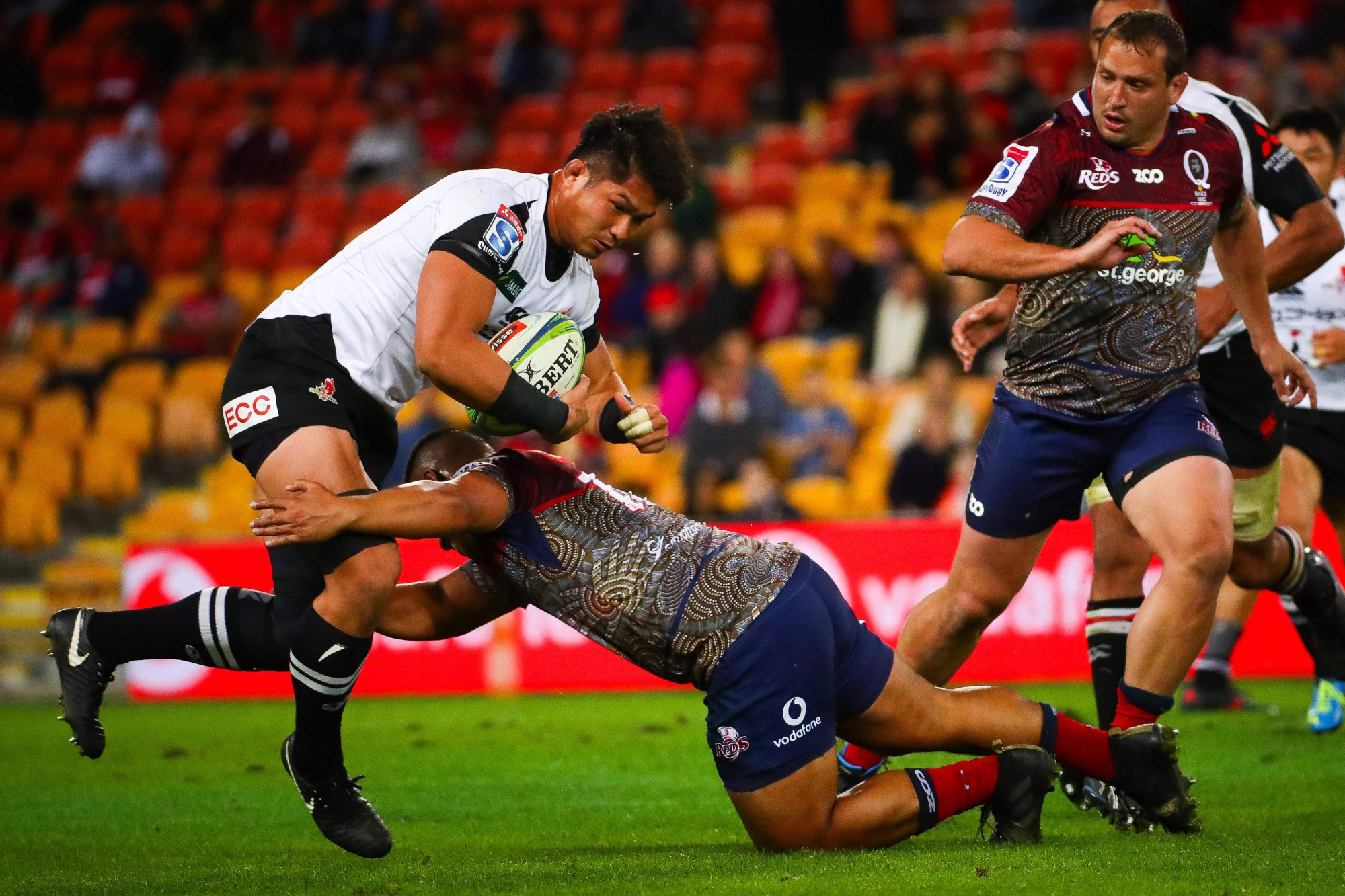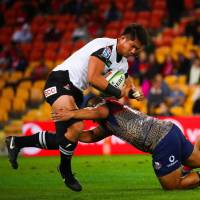The Sunwolves entered their third season in Super Rugby with a lofty goal of finishing in the top five in the standings.
However, the team had a league-worst 3-13 record in the 2018 campaign.
Nonetheless, the players insisted that it was a meaningful season that would relate to the development of the Japan national team before next year's Rugby World Cup.
Speaking to reporters before the team's year-end party in Tokyo on Sunday, two days after their season finale against the Reds in Brisbane (a 48-27 loss), many of the players said that their team has firmly shown improvements since it began competing in the league in 2016.
"Every year, we've made progress," veteran hooker Shota Horie said. "We won one game in our first season, two in the second and three this year. We've been moving forward if not rapidly."
Michael Leitch, a No. 8, stressed how difficult it is to win games in Super Rugby. But he added that the team improved offensively and was better than what its pitiful record indicates.
"We scored points and scored tries," Leitch said. "But instead, we gave up too many points."
The Sunwolves scored 404 points and gave up 664. They had 48 tries this year, which was up by seven from the previous season and 15 more than they had during the 2016 campaign. (They played 15 contests in those two years.)
Also, they recorded 1,738 carries in 2018 after having 1,650 in 2017 and 1,692 in 2016.
The team wished it could have won more, but does not feel devastated by the overall results. Some of the players said that competing in Super Rugby helped them gain experience and confidence.
"There were times that I could perform well and times that I did not perform well," said 25-year-old scrum-half Yutaka Nagare. "But I feel like I was able to accumulate experience playing in games with high intensity."
Last month, Japan had three test matches, two against Italy and one against Georgia, and posted a 2-1 record.
The 25-year-old Nagare said that he made some good decisions during the test matches and feels he owed it to Super Rugby.
"We lost one to Italy," he said. "But I think we showed what we've done for the Sunwolves."
The formation of the Sunwolves was essentially meant to help raise the standard of the national team. This year, the Sunwolves and national team shared the same head coach and assistant coach in Jamie Joseph and Tony Brown, respectively, in an attempt to greater link them with each other.
Center Harumichi Tatekawa said that the 2018 season was fruitful for the Sunwolves and it "was a half-year that would benefit the national team."
Another thing that was more prominent about the Sunwolves this year was their cohesion.
Veteran scrum-half Fumiaki Tanaka said that he played for the Sunwolves with so much more fun than last year.
"We were united, and our players had a better understanding of the game," said Tanaka, who has been with the team after competing for four years for the New Zealand-based Highlanders, another Super Rugby team.
Youngster Kazuki Himeno said, "I really loved this team. While we kept losing, none of us tried to cut corners. It gave me good inspiration."
Ultimately, the team and its players worked hard because the Rugby World Cup will be held on home soil next year. The Sunwolves are eager to play a better season in the first half of 2019 and hope to get a boost going in the World Cup.
"As we'll play right before the World Cup, we want to post more wins and it's important to get in the World Cup building confidence," Nagare said. "We only won three games this year, but we want to win more and get some momentum next year."


















With your current subscription plan you can comment on stories. However, before writing your first comment, please create a display name in the Profile section of your subscriber account page.